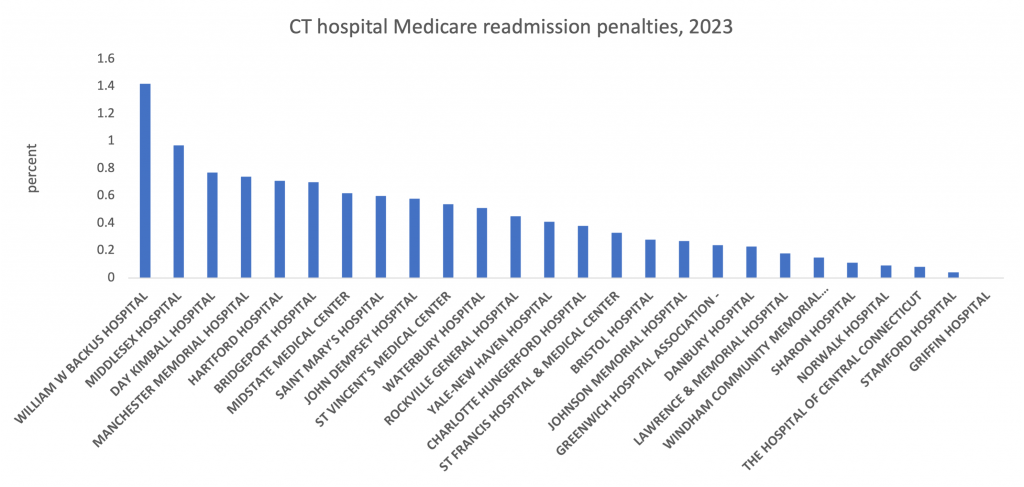Care Management
Analysis: CT State Employee Health Plan Tied for Richest in US
Last year, Connecticut’s health plan for current state employees and their dependents covered 98% of the costs of that care, according to a new report by Georgetown’s Center on Health Insurance Reform. We are tied with Vermont for the richest state employee plan in the nation. Connecticut’s plan for state employees and dependents would qualify…
Read MoreAnalysis: Limiting the Metrics We Use to Track Healthcare is Cheating
The quality of healthcare in Connecticut is average at best. There is a strong consensus that provider payments should be contingent on performance and quality measures, called value-based payment, or VBP. But the consensus ends there. Read more
Read MoreStudy finds only two thirds of CT patients getting primary care, 11th worst in US
Download the report A new study by Fair Health found that of Connecticut patients who had a medical visit from 2016 through 2022, one third (33.1%) had no claim for a primary care visit. Connecticut was 11th highest among states in patients missing primary care visits. At half of Connecticut’s rate, Massachusetts was the best…
Read MoreCT Medicaid costs stable but hospital spending needs monitoring
Download the report Sources below Connecticut Medicaid per member costs are stable and growing slower than other states. CT Medicaid per member costs are lower than all but 27 other states, just below the median. But hospital spending increases could erode that progress. Medicaid is not the driver of rising state budgets, growing less than…
Read MoreLegislators hear voices calling for consolidation protections to lower healthcare costs
Download our testimony Yesterday’s public hearing testimony was largely supportive of two bills to prohibit anti-competitive clauses in hospital system contracts with payers. Seventeen testimonies favored the bills, while eight opposed, mainly calling for more transparency and consistency in contracts. Several testimonies (here, here, here, here, and here) favoring the bills came from state residents…
Read MoreCT hospital readmission penalties higher than US, again
Even with an eased formula due to COVID, all but one acute care Connecticut hospital will be penalized by Medicare next year for higher-than-expected readmission rates. Next year, Connecticut hospitals will be docked by 0.456% on their Medicare payments, higher than the US average of 0.428%. Average Connecticut hospital readmission penalties have been higher than…
Read MorePrimary care spending boost and capitation didn’t work in private plans either
The big idea circulating in some CT health policy circles to control the costs of healthcare is to boost primary care with tons of money and capitate provider payments. Primary care is regular health care for prevention, like check-ups, and common health problems. A new study finds that the idea failed in private insurance, as…
Read MoreDSS’s new patient survey has little to say
DSS’s consultants reported on the results from their new patient experience/satisfaction survey for PCMH Plus members at this month’s MAPOC Care Management Committee meeting. The survey is important as the experimental PCMH Plus payment model risks inappropriately denying needed care and cherry-picking more lucrative patients. The main result, revealed in answer to a question, is…
Read MoreBook Club: The Long Fix
I’ve been avoiding reading The Long Fix: Solving America’s Health Crisis with Strategies that Work for Everyone by Vivian Lee. But this semester, one of my students asked if she could read it for her Book Review assignment. I couldn’t really refuse, so I had to read it too. The author, a physician and healthcare…
Read MoreCTNJ: Fact Check Shows That Raising Primary Care Spending Doesn’t Lower Total Healthcare Costs
The Office of Health Strategy and their consultants have asserted that it is critical to double spending on primary care in Connecticut to lower skyrocketing total healthcare costs. It’s very appealing to think that increasing investments in prevention and care management will reduce total costs. It avoids the difficult work of getting large health systems…
Read More







